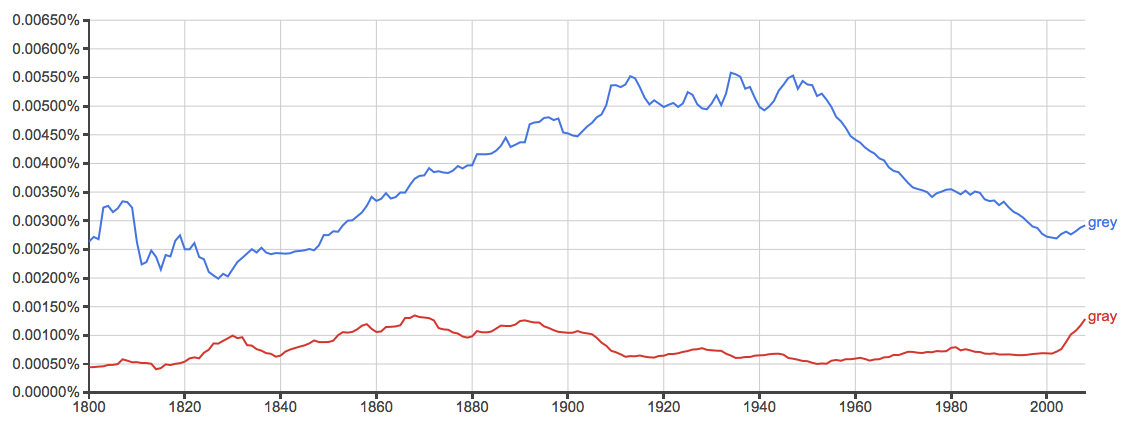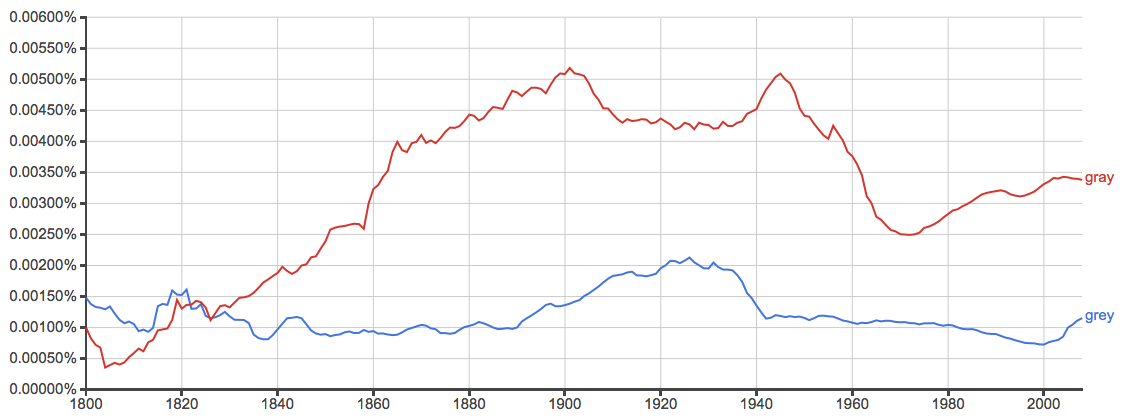How exactly is the color (colour?) between white and black supposed to be spelled? Is it grey or gray? Do they mean the same thing? And which is correct? These are probably some of the most frequently asked questions my readers write in to ask me, so today I’m going to address this problem head on.
In this post, we will finally solve the grey vs. gray debate, so that you will never have to second-guess yourself while writing these words again.
What’s the Difference Between Grey and Gray?
 Grey and Gray both can function as adjectives, nouns, and verbs, with all uses centering on the color intermediate between black and white. For example,
Grey and Gray both can function as adjectives, nouns, and verbs, with all uses centering on the color intermediate between black and white. For example,
- He is wearing a grey sweatshirt. (Adjective)
- You need to add more gray into the mixture. (Noun)
- My hair quickly grayed after my thirties. (Verb)
So you’re probably still asking yourself, “Okay, when do I know when to use gray or grey?”
The answer is that the difference between them is entirely dialectal. There is no demonstrable difference of sense or function between them, meaning both words can be used interchangeably.
That’s right; using grey or gray is acceptable.
When to Use Grey
Even though the only thing separating grey and gray is a dialectical difference, it is still important to keep the audience in mind while you are using these words.
Grey (with an “E”) is the preferred choice in British English. If you find yourself writing to a British audience in an English newspaper or magazine, grey is the word choice you will want to use.

As the above chart indicates, grey is much more preferred in British English.
When to Use Gray
Gray (with an “A”) is the preferred choice in American English. Similarly, if you find yourself writing to an American audience, you will want to use gray. In fact, the AP Stylebook requires the use of gray, not grey.

As the above chart shows, gray is favored in American English.
Exceptions to the Rule
 While it is generally acceptable to use these words interchangeably, there are few instances where you cannot and one form is absolutely required over the other.
While it is generally acceptable to use these words interchangeably, there are few instances where you cannot and one form is absolutely required over the other.
The first is with proper names. This one should be self-explanatory. If someone’s last name is “Grey,” you cannot spell it “Gray” and have that be acceptable.
The second is the name of the dog breed “Greyhound.” This name cannot be changed, and, interestingly enough, actually has nothing to do with the color of the dog.
The same thing goes for the busing company “Greyhound Lines.” This cannot be changed.
The third and final exception is with the scientific measurement called “the gray.” This measures absorption of one joule of radiation energy by one kilogram of matter. This cannot be changed.
History of Gray/Grey
The modern day spelling of gray (grey) actually comes from the Old English grǣg. Throughout the centuries there have been many variations in spellings, ei and ey and ai and ay.
There have also been attempts to distinguish grey and gray into different colors or hues, with the color gray being a simply black and white mixture but the color grey being slightly bluer. Perhaps this is why national surveys in both England and the United States show that many people believe these are actually two different hues, even though they aren’t.
Despite the complicated history, all you need to know is that they are used for different audiences.
Remember the Difference
A great trick to remember when to use which of these two words is that Gray is used in America and Grey is used in England.
Summary
So, how do you spell grey? Well, even though people get confused on the gray vs. grey debate, they can actually be used interchangeably. It is still important, however, to keep your audience in mind.
Contents
